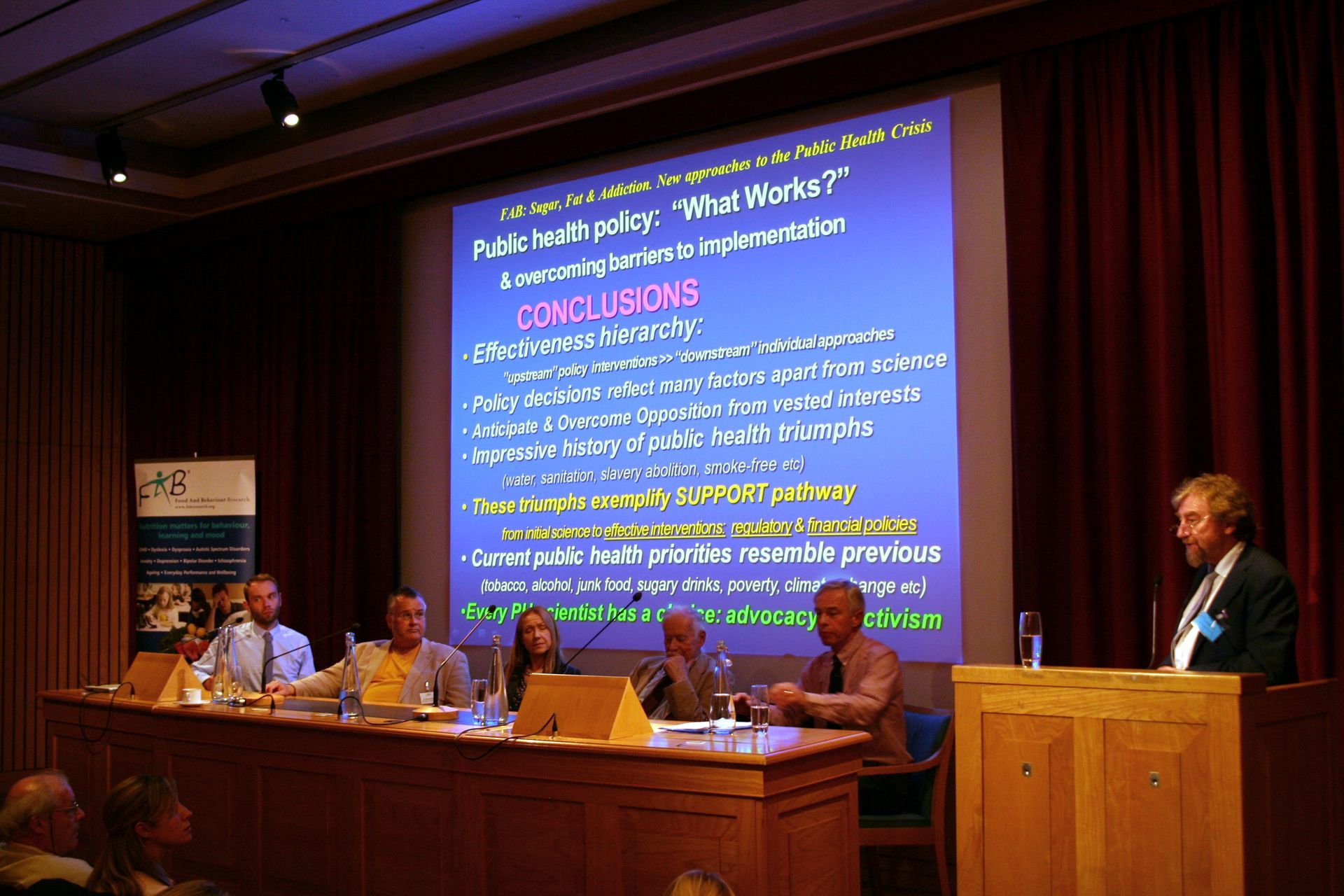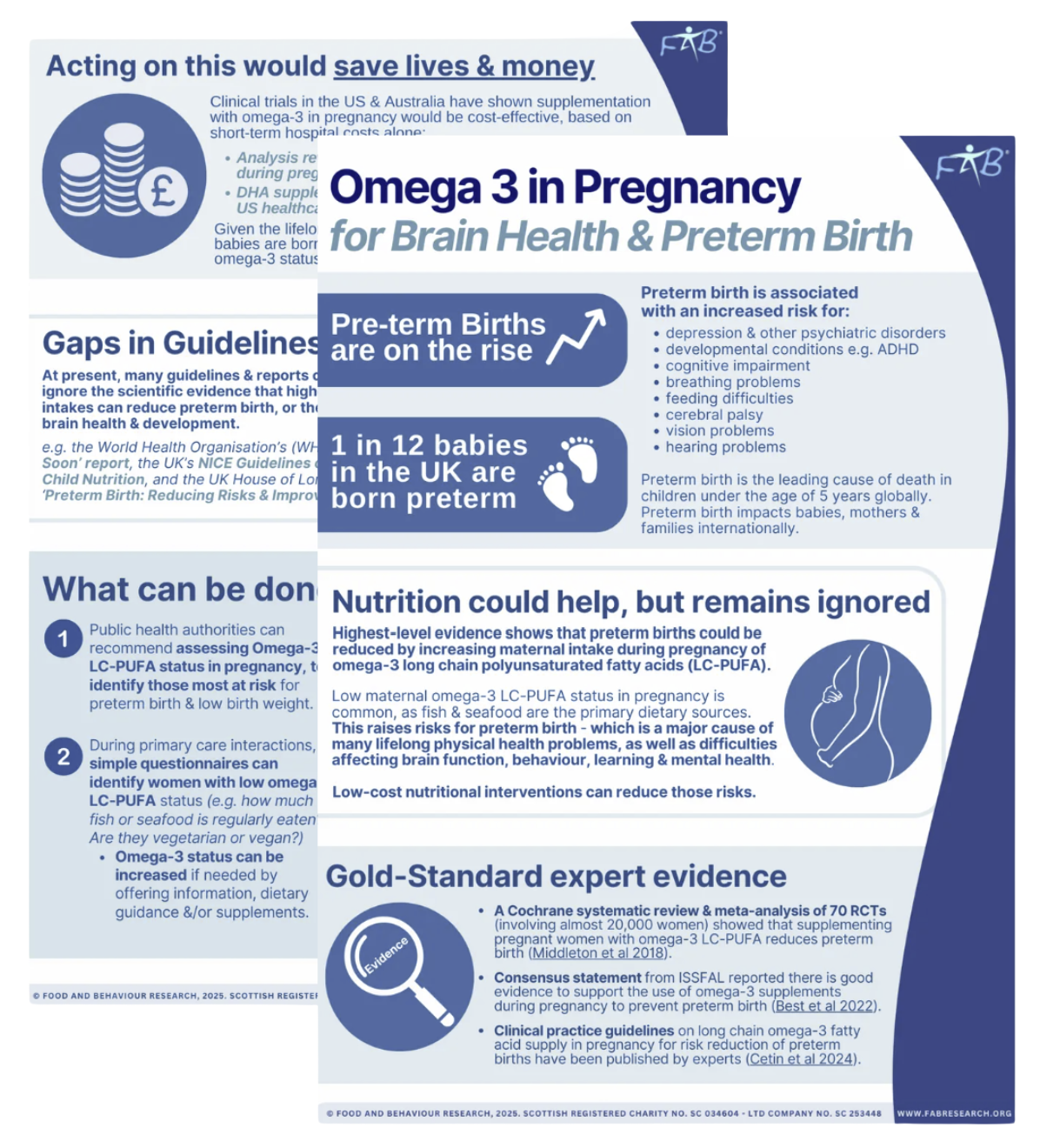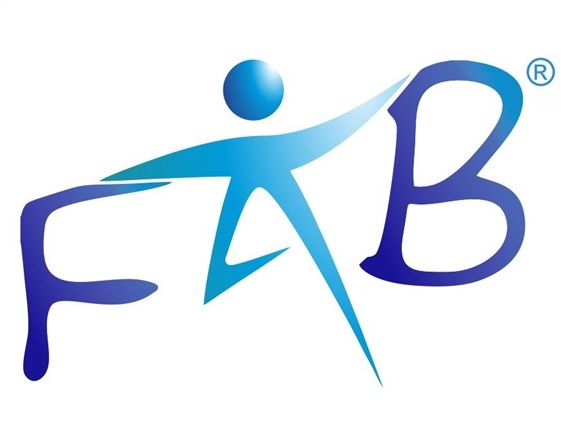Sugar, Fat, Food and Addiction Revisited
Reflections on FAB's landmark event that helped reshape how we think about food, the brain, and public health.
In July 2014, Food and Behaviour (FAB) Research brought together leading scientists, clinicians, and policymakers at the Royal College of Surgeons in London for a groundbreaking one-day conference: “Sugar, Fat, Food and Addiction: New Approaches to the Public Health Crisis.”
At the time, the concept of food addiction was still controversial. Could certain foods—or specific ingredients like sugar—really hijack the brain’s reward systems in the same way as drugs or alcohol? And if so, what did that mean for public health policy, personal responsibility, and treatment approaches?

A Forward-Thinking Agenda
Chaired by Neville Rigby, a leading voice in obesity policy, the conference opened with Dr. Alex Richardson of the University of Oxford and Founder of FAB Research, who framed the central question: how diet and nutrition influence behaviour and mental health? Dr. Richardson set the tone for a day that challenged conventional thinking—linking biological, psychological, and societal factors behind overeating and addiction.
Professor Jason Halford explored why “just saying no” to overeating isn’t so simple, explaining how appetite regulation and modern food environments interact to drive the obesity crisis. Then Professor Graham MacGregor, founder of Action on Sugar, turned attention to the public health challenge of excessive sugar consumption—arguing for stronger policy interventions and industry reform.
A highlight came from Professor Robert Lustig of UCSF, whose work had already made “the bitter truth about sugar” a viral talking point. His session on Sugar, Hormones and Addiction unpacked how chronic sugar intake disrupts metabolic and neurochemical balance, contributing not just to obesity but to mood disorders and compulsive eating.

Linking Food, Mood, and Behaviour
The afternoon, chaired by Professor Michael Crawford, widened the focus beyond sugar. Dr. Richardson returned to discuss the role of nutrition in “addictive disorders” more broadly, while Captain Joseph Hibbeln of the US National Institutes of Health explained how omega-3 fatty acids—and the balance of dietary fats—play key roles in impulsivity, substance use, and mental wellbeing.
Other speakers brought equally compelling insights:
Dr. Bernard Gesch presented pioneering evidence that improved nutrition can reduce antisocial and even criminal behaviour.
Kevin Williamson, a senior NHS nutritionist, shared his innovative work integrating nutritional care into psychosis services for young people.
Professor Simon Capewell closed the day by asking the hard questions about what works in public health policy—and what barriers continue to block change.
Why It Still Matters
The conference seems remarkably prescient. Many of the issues debated then—ultra-processed foods, sugar taxes, dietary fats, and mental health links—now dominate public and policy discussions.
FAB Research’s mission, to bridge the gap between cutting-edge nutrition science and real-world practice, was on full display that day. The event highlighted that “food addiction” is not just a metaphor but part of a wider system linking diet, brain function, and behaviour—issues that remain at the heart of today’s public health and mental health challenges.
More than a decade later, “Sugar, Fat, Food and Addiction” stands as a milestone event—one that helped turn scientific insight into public awareness and policy momentum.
Graham MacGregor speaking on the day about the Food Industry and the powerful influences behind the obesity epidemic :
Professor Graham MacGregor's full presentation is available exclusively to FAB Associates via the FAB Associate Library.
Enjoying this article?
Get an expanded, downloadable version to your inbox when you sign up.

Were you expecting a paywall?
Food and Behaviour Research relies on donations to make articles like this one freely available.
Make a quick and easy donation of ANY AMOUNT and help support our Charity to create future articles and resources.
Looking for even more exclusive content?
Join us as a FAB Associate to access our audio-visual library and resources, and attend our live events for free.
All donations are very gratefully received
Thanks so much for your support
Contact Us
Contact Us
Share this article
Read more on Pregnancy and Early Life






